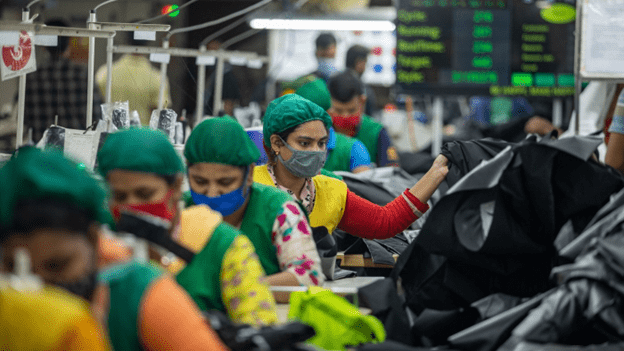Sustainability in Bangladesh's Garment Industry: The DBL Group Story
Bangladesh is one of the world’s leading garment exporters, supporting major international fashion brands with its extensive textile industry. However, as global consumers and brands become increasingly aware of their environmental and social impacts, the demand for sustainability in the garment sector has intensified. Although Bangladesh remains a pivotal centre for global garment manufacturing, it faces distinct challenges, including inadequacies in infrastructure and inconsistent application of regulatory frameworks—the demands of international buyers for cost-effectiveness often conflict with the necessity for investment in environmental sustainability. Workers’ welfare remains a significant concern, particularly in smaller and non-certified manufacturing facilities, often referred to as micro and small industries. With both regulatory pressure and shifting market expectations, Bangladesh is at a critical juncture in transforming its garment sector into a model of ethical and sustainable production. The industry must strike a balance between competitive pricing and rising expectations for environmental stewardship and social justice.
Within this dynamic landscape, DBL Group has emerged as a leading light, demonstrating that it is not only possible but also profitable to integrate sustainability into every layer of industrial operations. During a discussion, the THRREADS team had the opportunity to speak with key members of the DBL Group to understand their vision, strategies, and challenges in implementing sustainable practices. Their story presents a roadmap for aligning profitability with long-term social and environmental responsibility through business innovation and commitment.
DBL Group: A Case Study in Sustainability Leadership
DBL Group is recognised as one of Bangladesh's leading integrated textile and garment manufacturing conglomerates. With a workforce of over 47,000, the Group is celebrated for its long-term strategic vision, commitment to innovation, and dedication to inclusive business practices throughout its extensive operations.

At the heart of DBL's operational philosophy is its "Sustainability 5.0" framework, which defines sustainability as the ability to survive and grow. This comprehensive approach is built on five interconnected pillars:
- People: Promoting workforce development, gender empowerment, and strong health and safety standards.
- Process: Enhancing efficiency through optimised operations, advanced automation, and diligent waste reduction strategies.
- Product: Focusing on circular design principles, pioneering material innovation, and ensuring rigorous quality assurance.
- Community: Implementing worker-centric initiatives such as housing support, educational programmes, accessible clinics, and food security measures, and
- Environment: Prioritising renewable energy adoption, process water reusing systems, and proactive emissions reduction.

DBL Group showcases its commitment to sustainability through a variety of innovative practices:
- Waste Reduction: Utilising 3D virtual sampling significantly reduces the need for physical samples, thereby minimising shipping waste.
- Supply Chain Traceability: Using leading digital platforms like Textile Genesis, US Cotton Trans Protocol, and Better Cotton Initiative through blockchain technology to enhance supply chain transparency and traceability.
- Resource Efficiency: Implementing advanced heat recovery boilers and comprehensive wastewater reuse systems to conserve energy and water, and
- Internal Governance: Employing sophisticated internal compliance software and rigorous Key Performance Indicators (KPIs) tracking to ensure adherence to sustainability standards.

"At DBL, we perceive sustainability as the ability to survive and grow responsibly by balancing innovation, inclusivity, and environmental care. The challenge lies in scaling responsible practices without compromising efficiency, but the opportunity is in pioneering solutions that set new benchmarks. True progress comes from collaboration and co-creation where mutual learnings—like with the THRREADS research team—turn ideas into impact, and innovation into action". – Mohammed Zahidullah (Chief Sustainability Officer, DBL Group).
DBL's social impact initiatives are deeply embedded in its operations, aiming to improve the well-being of its workforce and their families. These initiatives include:
- Skill Development, which involves establishing Industry-Based Training (IBT) Centres directly linked to national skill frameworks, to enhance worker capabilities.
- Welfare Services: Operating Fair Price Shops and providing subsidised healthcare services, initiatives that have been in place since 2008.
- Women Empowerment: Actively promoting women into leadership roles, with 14% female supervisors, supported by structured leadership development programmes.
- Family Support: Implementing family-oriented policies and providing crucial healthcare support.

DBL Group's strong commitment to Environmental, Social, and Governance (ESG) performance has attracted significant international investments. They are collaborating with prestigious global financial institutions, including the IFC (World Bank Group), British International Investment, and DEG (Germany). Furthermore, they have consistently issued sustainability reports since 2013, demonstrating a commitment to transparency and accountability.
DBL Group challenges the common perception of exploitative, low-cost garment production in the Global South by demonstrating that sustainability, innovation, and inclusive growth can thrive together. For Bangladesh's garment industry to become a global leader in ethical manufacturing, more companies need to follow DBL's lead. Simultaneously, brands, consumers, and policymakers must intensify their efforts, not only by setting standards but by offering genuine support and fair pricing. Ultimately, the transformation of the fashion industry hinges not on declarations but on shared values and the willingness to act upon them.
Authors
- Professor Thankom Arun, University of Essex
- Professor Muhammed Ismail Hossain, University of Dhaka
- Dr Shahidul Islam, University of Essex


